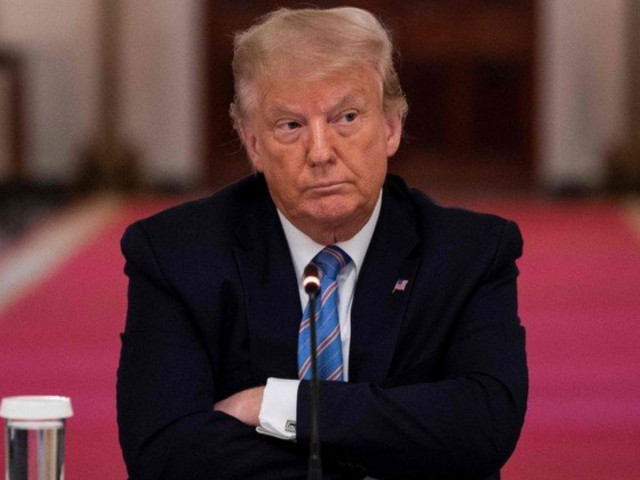With no self-pardon in hand, Trump faces uncertain legal future
Experts say self-pardon violates basic principle that no person should be judge in his or her own case

Donald Trump issued a list of pardons during his final hours as US president but did not include himself, his children, or personal lawyer Rudy Giuliani, even though advisers said he had privately debated the extraordinary step of a self-pardon.
Here is how the decision could impact his potential civil and criminal liability as a private citizen:
What may have guided Trump’s decision not to pardon himself and members of his inner circle?
Presidential pardons can accomplish so much. They can shut down prosecutions by the US Department of Justice, a federal agency. But investigations brought by state-level prosecutors, such as the criminal probe Manhattan District Attorney Cyrus Vance is leading into whether Trump’s businesses engaged in fraud, would still be active.
Vance has not charged anyone with criminal wrongdoing and Trump has said the investigation is politically motivated.
A self-pardon would have only increased calls to prosecute Trump on a state level, said Daniel R Alonso, a lawyer at the Buckley firm and Vance’s former deputy in the Manhattan District Attorney’s Office.
It could also have fuelled efforts to hold Trump accountable through civil lawsuits brought by private litigants, such as family members of people who died during the Jan. 6 storming of the US Capitol by Trump followers, said Jessica Levinson, a professor at Loyola Law School in Los Angeles.
Before the attack, as lawmakers were certifying Democrat Joe Biden’s Nov 3 election victory, Republican Trump took to a stage near the White House and exhorted a crowd of supporters repeatedly to “fight” - using the word more than 20 times - and “not take it any longer.” He also called on his followers to march on the Capitol, the seat of government.
“With a pardon comes at least the veneer of an admission of guilty,” said Levinson. “In a way, I think pardoning himself and his family is almost like a taunt. It would have said ‘try to come and get me,’ and would have accelerated litigation and investigation.”
There is also considerable doubt among scholars about whether a self-pardon would hold up in court. Many experts said it violates the basic principle that no person should be the judge in his or her own case.
Self-serving pardons might also have drawn the ire of Republicans in the US Senate, who will soon have a trial to determine whether Trump’s Jan 6 speech was incitement, the charge in his impeachment by the House of Representatives.
The trial could result in Trump being disqualified from future office.
Could Trump have pardoned himself and others in secret?
It’s possible, said former prosecutor Alonso.
Pardons are usually made public. But the Constitution does not require this, and Trump could secretly issue pre-emptive pardons to family members and associates, or even himself, said Alonso.
The Presidential Records Act requires documentation of presidential decisions but the law lacks a mechanism for enforcing it, Alonso said. A secret pardon might only become public if the recipient were eventually charged with a federal crime and invoked the pardon as a defence.



















COMMENTS
Comments are moderated and generally will be posted if they are on-topic and not abusive.
For more information, please see our Comments FAQ